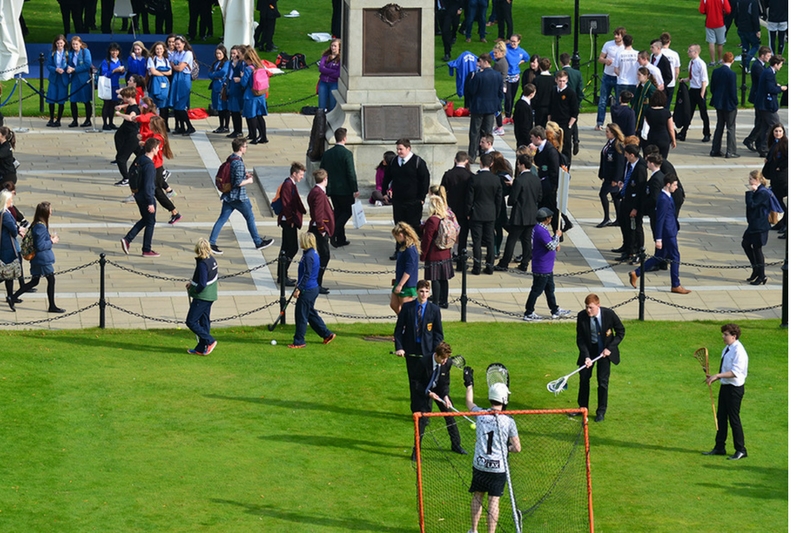Theofilos Valkanidis
SPARK is a PhD project that has received funding from the European Union’s Horizon 2020 research and innovation programme under the Marie Sklowdowska-Curie grant agreement No 754507.
What is your ideal Research outcome?
Due to the popularity of football with the general public, this project lends itself perfectly for popular scientific applications and outreach activities. This is expected to occur through demonstrations and QUB open days, presentations for the general public, a project website, and the creation of video summaries of the different studies. In addition, the project will involve visits to football clubs to demonstrate VR system.
Supervisors
Dr Joost Dessing and Dr Mihalis Doumas
Why did you choose this PhD and why at Queen's?
I had no doubt that QUB is the appropriate place to pursue my doctoral degree. QUB provided me with the opportunity to attend classes and laboratories that are taught by experienced professors and instructors with rich research and consultancy background, which will allow me to excel in my academic career. During my PhD also allowed me to develop the soft-skills that are needed to become an outstanding researcher in the field.
How have you been supported at Queen's?
I attended many seminars and works during my Ph.D. in Queen’s. The nature of my founding included organised sessions. As mentioned above SPARK is a Horizon2020 funded Marie Skłodowska-Curie doctoral training programme that supports 20 interdisciplinary PhD students at Queen’s University Belfast. PhD students funded within Marie Skłodowska-Curie programmes have the title of Early Stage Researcher (ESR). At its core, the SPARK Programme is driven by the need to develop future leaders whose skills combine disciplinary excellence with a capacity for interdisciplinary, intersectoral and international (3i) working that creates genuinely disruptive thinkers. SPARK researchers are based in academic Schools or research institutes across all three of Queen’s Faculties: Arts, Humanities and Social Sciences (AHSS); Engineering and Physical Sciences (EPS); and Medicine, Health and Life Sciences (MHLS). In addition, they are trained as a cohort via The Graduate School to be Thinkers, Leaders, Innovators and Communicators who are Future-Ready. The Graduate School provides world-class facilities as well as an intellectual hub for 3i training, debate and dialogue.
In what ways have you developed at Queen's?
I taught to be reflective critical, flexible, disruptive, creative, business-aware, risk manager, insight driven, visionary, strategic, self-aware, collaborative, academic writer, publically engaged, socially networked, professional presenter, confident, resilient, employer-focused and networked. In other words, when this Ph.D. will come to an end I would be a better thinker, with innovation and leader skills that allow me to attend the future with confidence.
Can you describe the postgraduate community in the School and at Queen's?
A multidisciplinary society with huge variety in age, educational, cultural and social experiences.
Where do you hope your PhD will lead?
I do not know where my future lies, but I am sure that am heading to it with more confident steps!
Connect with Theofilos on the following platforms:

